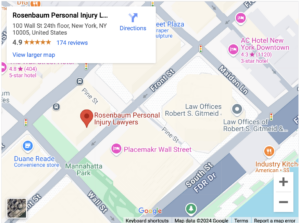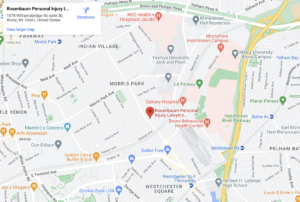Are autonomous vehicles properly regulated?
In the absence of federal regulations, states have been left on their own to decide how to manage the legalities of autonomous vehicles.
Like most people around the country, New Yorkers have heard about the many recent incidents involving autonomous vehicles. From pedestrians being hit to other problems, these events may well be shaping the way that consumers look at and think about self-driving cars. They are also highlighting what some believe to be a serious gap when it comes to the regulation of the technologies and practices involved with autonomous vehicle testing and deployment.
Lack of consistent regulation nationwide
According to the National Conference of State Legislatures, in every successive year from 2012 through 2017 more states introduced bills targeted at laws governing self-driving vehicles. However, to date, only 29 states or regions including the District of Columbia have actually enacted any form of legislation. For some, legislation has actually come about via executive orders from governors.
New York is one of the states with some laws in place. Regionally, Connecticut, Vermont, Virginia, D.C., Massachusetts and Pennsylvania have done so as well. Neighboring New Jersey has no laws whatsoever in place.
Many topics need to be addressed
There are numerous issues that require attention by legislators that the public should be aware of as they directly pertain to public safety. The Brookings Institution explains that laws span many topics including whether or not a human driver is or should be required to be in a self-driving vehicle during testing.
Another topics is what information must be reported to whom and when about any testing. For example, data on the number of miles driven and how often and why a human driver needed to intervene on behalf of the onboard computer systems would be important to know.
Consumers weary of autonomous vehicles
As reported by The Verge, just six months ago 63 percent of consumers said they were too scared to ride in a completely self-driving car. Among the millennial generation, only 49 percent said they would not ride in an autonomous vehicle.
Fast forward to today and 73 percent of the general population and 64 percent of millennials cite fear of riding in a fully self-driven automobile. Another 63 percent of respondents to the AAA survey said they would not feel safe on a bike or on foot if they knew that a self-driving car was on the road.
Public safety requires action
People in New York who are concerned about their safety or who may ever be impacted by an accident involving a self-driving car should always reach out to an attorney for help. With laws still evolving, securing the assistance of someone who can track the current legislation is important to protect one’s rights.
Contact the New York City Car Accident Law Firm of Rosenbaum Personal Injury Lawyers for Help Today
If you’ve been injured in an accident in Manhattan, NY, and need legal help, contact our personal injury lawyers at Rosenbaum Personal Injury Lawyers to schedule a free consultation. We also serve in Brooklyn and the Bronx.
Rosenbaum Personal Injury Lawyers – New York City Office
100 Wall St, 24th Floor
New York, NY 10005
(212) 514-5007
Our firm is located near you. We have an office in NYC
Find us with our GeoCoordinates: 40.7051415,-74.0067386
Rosenbaum Personal Injury Lawyers – Bronx Office
1578 Williamsbridge Rd suite 3b
Bronx, NY 10461
(929) 447-2347
Our firm is located near you. We have an office in the Bronx
Find us with our GeoCoordinates: 40.8468944,-73.8483118
Rosenbaum Personal Injury Lawyers – Brooklyn Office
32 Court St #704
Brooklyn, NY 11201
(718) 550-3601
Our firm is located near you. We have an office in Brooklyn
Find us with our GeoCoordinates: 40.692948,-73.991038



